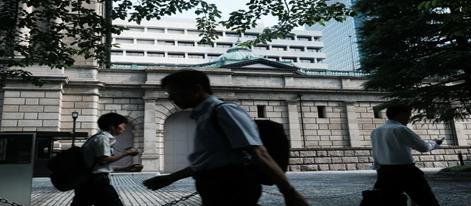
Affected by various factors, Wall Street and Asian stock markets experienced a slight panic, but stabilized on Tuesday. The S&P 500 index and Nasdaq index both rose 1.3% in early trading, expected to break the dismal downward trend of three consecutive days. Previously, several weaker than expected reports raised concerns about the Federal Reserve's excessive suppression of the US economy through high interest rates, with the S&P 500 index falling more than 6% and the Dow Jones Industrial Average rising 0.7%.
Firstly, the Bank of Japan's interest rate hike has disrupted investors' ability to borrow yen at low cost and invest it in other parts of the world, exacerbating market volatility. Investors withdrawing these investments may have accelerated the global market downturn. In the early stages, investors began to worry about a slowdown in the US economy. Accusing the Federal Reserve of cutting interest rates for too long and selling off stocks of technology companies that have sparked a craze and high market value due to artificial intelligence. Starting from 2022, the Federal Reserve will rapidly raise interest rates in response to soaring inflation.
In the past year, the Federal Reserve has maintained its benchmark interest rate at 5.4% as part of its efforts to combat inflation and cool down the hot labor market. Investors believe that the policies of the Federal Reserve and other central banks are on track, although inflation rates are still slightly above their targets (the Fed's inflation rate is 2%). The European Central Bank and the Bank of England have cut interest rates once, and the Federal Reserve has also hinted at preparing to start cutting interest rates in September.
Secondly, despite some signs of cooling, the US economy has maintained strong growth despite rising interest rates, with a growth rate exceeding that of Europe and Asia. The economic report shows that weak data from the job market, manufacturing, and construction industries have raised concerns about a slowdown in the US economy, as well as criticism of the Federal Reserve waiting too long to cut interest rates. US traders are currently betting that the Federal Reserve will lower interest rates by half a percentage point in September, instead of the usual quarter percentage point, with some calling for an emergency rate cut.
On the other hand, several large tech stocks drove the market to achieve double-digit gains in July. But last month, the momentum of these companies reversed as investors were concerned that their stock prices were too high and profit growth expectations became difficult to achieve. This view was confirmed when most of these companies' latest profit reports were unsatisfactory. After the news revealed that it had significantly reduced its stake in the iPhone manufacturer, Apple's stock price fell by more than 5%, and Nvidia's market value has shrunk by more than $420 billion. Overall, the technology sector in the S&P 500 index is the biggest factor dragging down the market.
In addition, the Nikkei index suffered its worst two-day decline in history, with a total drop of 18.2%. The Bank of Japan's interest rate hike last week was one of the factors that led to a significant decline in the Nikkei index. The Bank of Japan's interest rate hike has affected so-called arbitrage trading, which refers to investors borrowing from countries with lower interest rates and relatively weak currencies, and investing these funds in places that can generate high returns. The rise in interest rates leads to the appreciation of the yen, which may force investors to sell stocks to repay these loans.
Overall, experts and analysts encourage investors to consider the long-term, especially those who focus on retirement savings. Typically, panic selling on a red day can result in more losses than savings, and the market has recovered from a more severe sell-off than the current one. Investors should try to wait for the current wave of turbulence to pass. As August and September gradually enter a relatively calm seasonal period, volatility is expected to continue; However, it is important to remember that there are always opportunities hidden on the other side of the storm.

The U.S. third-quarter GDP growth rate, strikingly highlighted at 4.3%, not only surpassed market expectations but also earned the label of "the fastest in two years."
The U.S. third-quarter GDP growth rate, strikingly highligh…
Recently, US personnel intercepted a "Century" super oil ta…
According to Xinhua News Agency, the subtle changes in the …
The rapid development of artificial intelligence has brough…
In December 2025, Taiwan's political scene was shaken by a …
When Apple appears for the Nth time on the list of penaltie…